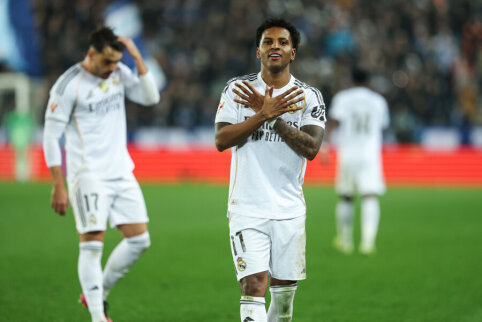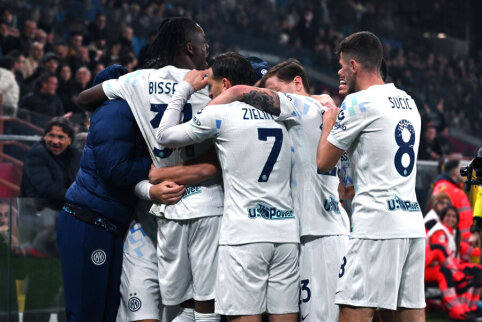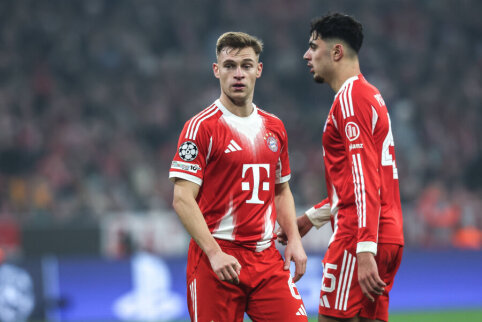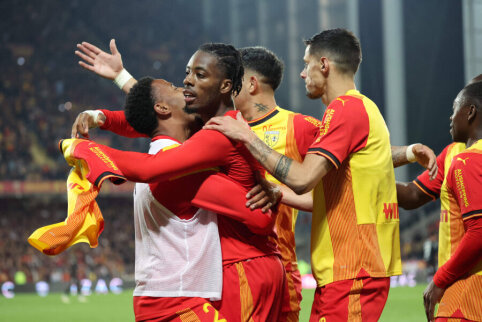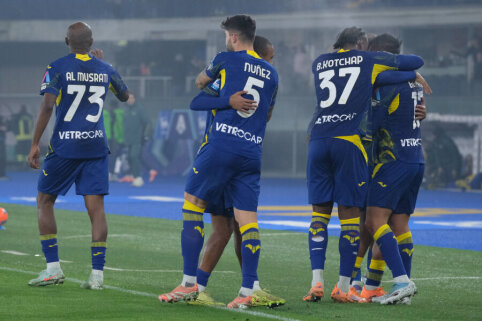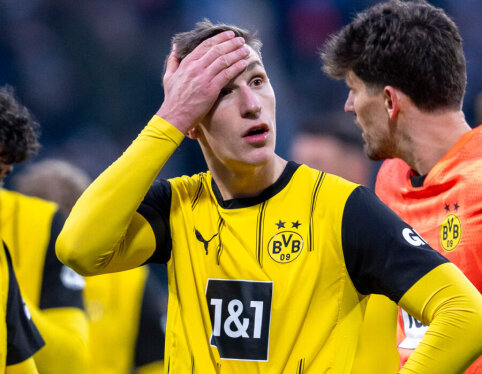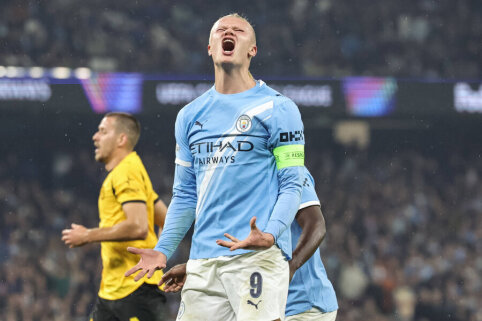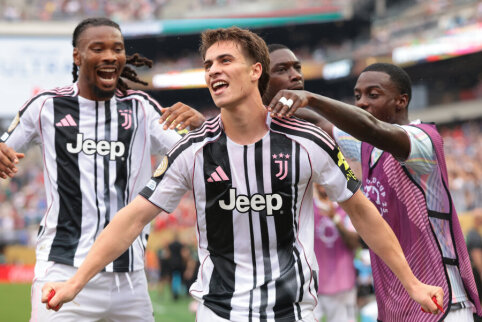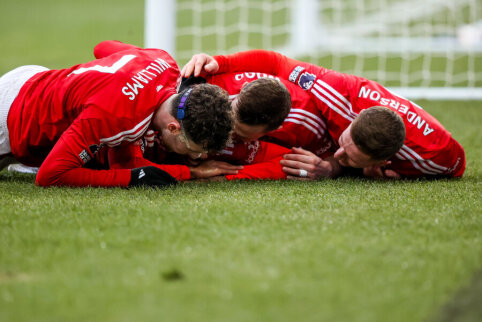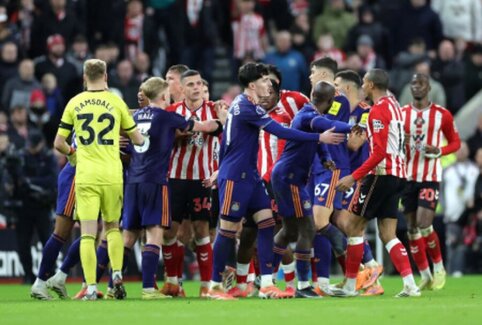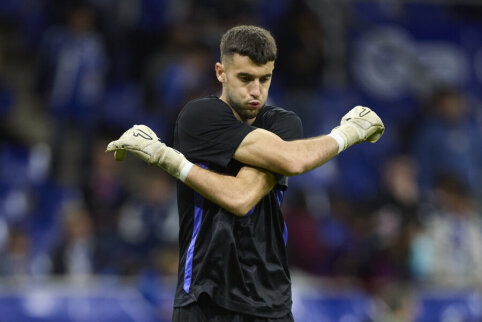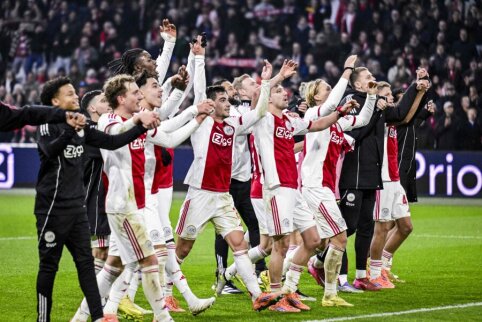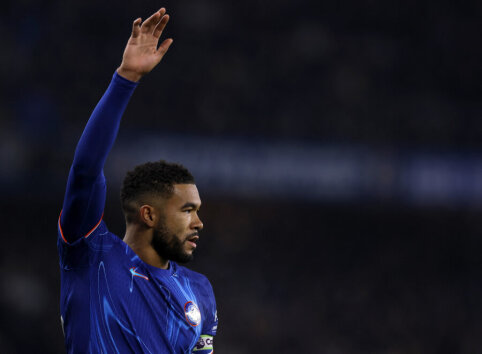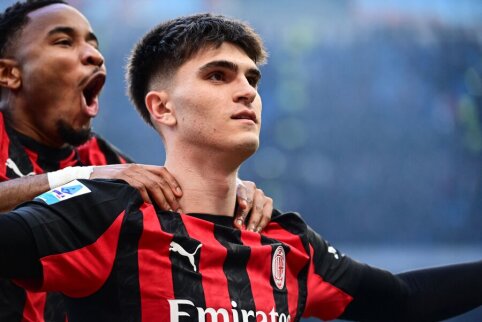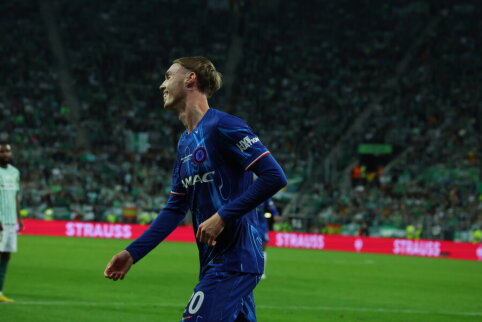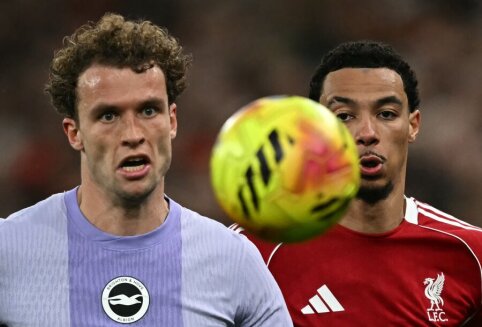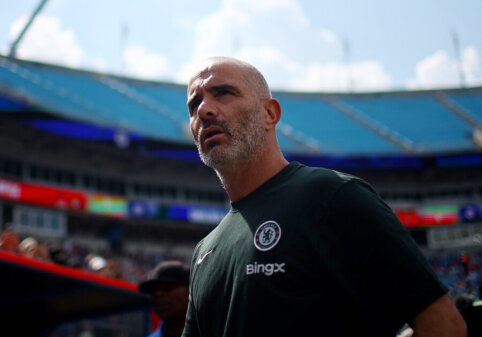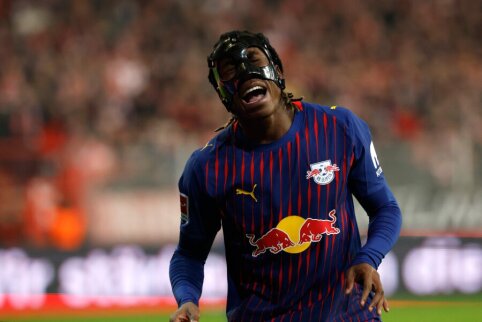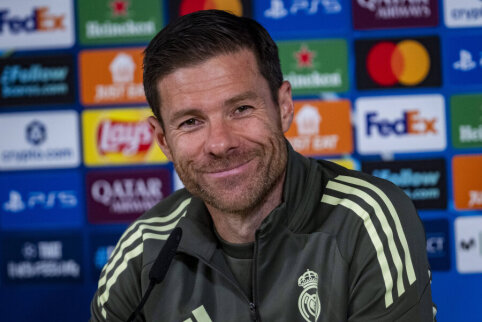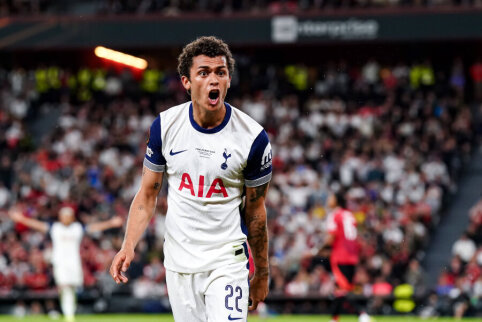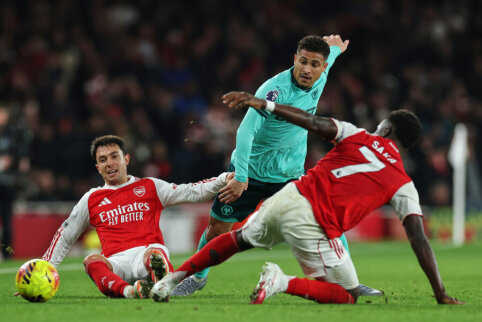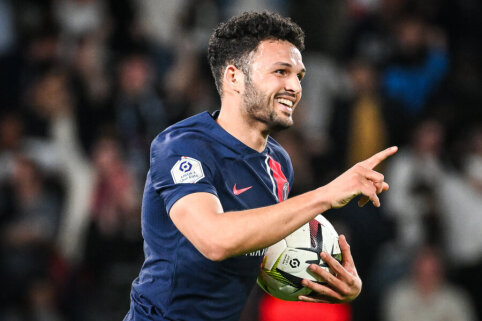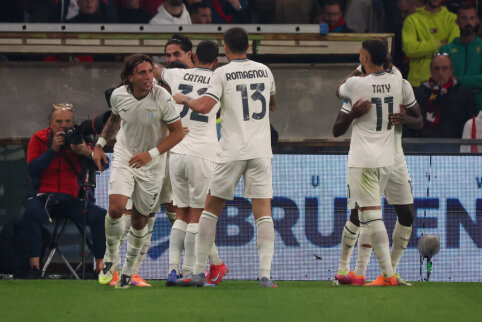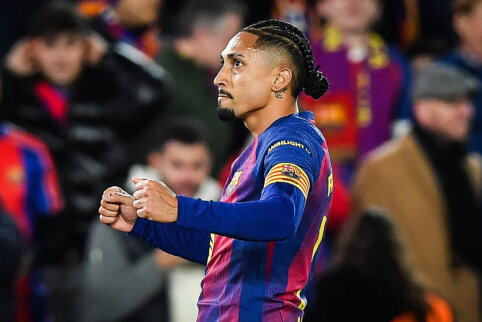 © EuroFootball.com
© EuroFootball.com
Last year towards the end and the beginning of this year, many well-known players and referees announced the end of their careers. Some firmly stick to their word and intend to leave football, while others have been persuaded otherwise. One player who has made the final decision to stop playing - despite still receiving offers, quite a lot in fact - is quoted as saying, "I do not want to go abroad because I have chosen Madrid as my place of residence, and I do not want to drag my family somewhere abroad. I have to reject offers from Spain, as I cannot represent any club in this country, except for Madrid. That is my heart's team." As known, the Argentine played a significant role in the Champions League victories of the royal club in the Seventh and Eighth - the seventh and eighth. "Taking into account my family's wishes, I have decided to take a break this season," Redondo continues. "And next season, return to football in some other role. Which role - I need to think about finding a suitable niche." Ferdinand also decided to say farewell after this season. In January, he was sold to "Reading" - a club from the first division of England, and now the player is trying to push this club to the elite. The 38-year-old player's contract is set until this summer. "If 'Reading' breaks into the Premier League, it will be a perfect end to my career," says Ferdinand, who scored a total of 210 goals during his 18 years of professional football, representing "Q.P.R", "Tottenham", and "Newcastle", including goals scored for the England national team. Steve McManaman decided to retire, although he is only 33 years old. His contract with [Club] expires at the end of this season, and "Macca," who has overcome Achilles problems, seems to have decided to put an end to it: "The season will come to an end, we will sit down in a family environment, and decide whether to continue. I don't want to play in a traumatized way. If my health is not perfect, I will leave. Dragging yourself until the last drop, until you are pushed out of football backward - that's not for me." Djalminha is leaving football at the age of 34. He played his last match in the second half of last year for the Mexican "America" club, which terminated his contract three months after it took effect. The reason - the appalling physical form of the veteran, allowing him to spend only 170 minutes on the field. Djalminha's professional career lasted 16 years, including 524 matches and 166 goals. Born in Rio de Janeiro, he began his football career at his hometown team - "Flamengo", coached by the famous Tele Santana. After a short break at the "Guarani" club, Djalminha ended up in another big club with a great coach - "Palmeiras" under the guidance of Vanderlei Luxemburgo. There, playing alongside Cafu, Junior, Flavio Conceicao, Rivaldo, Muller, and Luizao, he became a real star and played a great period, earning an invitation to the national team. He made his debut for "selecao" in 1996 against the Lithuanian national team, and in 1997 went to the Copa America tournament in Bolivia and helped win it. Djalminha then joined [Club]. The six-year period in La Coruna was another excellent period for him, bringing trophies from four tournaments he had won, starting with the most important one - the 2000 Spanish Championship. In that triumphant year, the Brazilian scored 10 goals in 31 matches. But there was an incident. In April 2002, Djalminha perpetrated an attack that stayed in the memory of all Spanish fans against his own club's coach - Javier Irureta, tapping him on the head. The incident had sad consequences: as Luis Felipe Scolari admitted, this episode resolved his doubts about including the legionnaire from "Deporo" in the "golden" Brazil lineup for 2002. The national team coach, upon receiving news of Djalminha's deed, struck him off the list of candidates, replacing him with the youngster Kaka. This is how the player's tenure in the national team ended with not very impressive stats of 14 matches and five goals. For a while, the hot-tempered Brazilian was tolerated by "Depore" until they also refused his services. "The pleasure I get from playing at a professional level has passed for me," admits Djalminha. "Only a very good offer would make me stay for another year or more." "Palmeiras" offered him a return to their ranks. But this is by no means the same team as it was under Luxemburgo. "With the lineup they have, 'Palmeiras' will not be able to compete for the title. They need two to three top-class players," explained Djalminha as he justified his refusal to a former club. Miguel Angel Nadal is putting an end to his 18-year career. A participant in three World Cup tournaments says, "I always tried to be honest with myself and those who believed in me. I didn't like how I looked during the preseason camp. After that, the unpleasant feeling of the results of that camp recurred several times. And I decided not to turn into a clown and make my coach and president laugh." Nadal, the uncle of the well-known tennis player Rafael Nadal, started his career at [Club]. In 1991, Cruyff called him to [Club], where the player spent eight glorious seasons, five of which ended in championship victories. He also achieved two victories in the UEFA Cup - the Champions League and the Winners' Cup. The final stretch of Nadal's career, which the player decided to spend at his hometown club, was also not in vain. In 2003, "Mallorca" won the Spanish Cup, which became Nadal's third in his career. His experience in the Spanish league includes 462 matches and 33 goals. Peter Kouba, a 36-year-old Czech goalkeeper, and the vice-champion of Europe in 1996, is joining the coaching staff. He made the decision to end his career due to persistent physical problems: after an injury that required surgery, he considered continuing his suffering pointless. However, he will not leave Prague's "Sparta", where he won five national championship titles - he will remain working with goalkeepers. In the Czech championships, Kouba played 269 matches and scored one goal (he scored 11 penalty shots in 1995). He was once recognized as the country's best player (1993). In addition to "Sparta", he played for three other clubs in his homeland - "Bohemians", "Jablonec", and "Viktoria", as well as abroad for Spanish "Deportivo" and German "Kaiserslautern". Claudio Caniggia announced his retirement from football in mid-February on an Argentine radio station. "For the past seven months, I have not played and stayed in shape. I am still in great condition and do not feel older than a thirty-year-old. But I do not intend to linger with this decision," said the long-haired 38-year-old forward, adding that he would now have to choose where to settle with his family. A couple of Argentine championship teams - "San Lorenzo" and "Newells Old Boys" - offered him to play in their lineup for the ongoing Clausura, but an agreement was not reached. Exactly twenty years ago, in 1985, Caniggia started playing in the top division wearing a "River Plate" shirt with a red sash. In Italy with "Verona", "Atalanta", and "Roma", he played 138 Serie A matches (34 goals). Later, fate took him to "Benfica". From there, he returned to his homeland, succumbing to the insistence of another giant - "Boca Juniors". There, he was lucky to play alongside what he believed to be the best player of all time - Diego Maradona. He then went to Scotland ("Dundee United" and "Rangers") and then to Qatar ("Al-Arabi") not so much for money, but for exoticism and new experiences. Despite participating in three World Cups, Caniggia considers himself the best option for the Argentine national team during the fifteen years he represented it, the one who won the Copa America in Chile in 1991. At that time, the team was led by Alfio Basile. In 1994, Basile removed Caniggia from the lineup when Maradona was caught using drugs (Caniggia also did not avoid stimulants. In Italy, he was caught twice.). In 1990, with his team, he became a runner-up, and in 2002, Caniggia's participation was only nominal: he did not spend a minute on the field, although he managed to get a red card (for insulting the referee while sitting on the bench). Of the coaches he worked with, he particularly highlights Marcelo Bielsa. Following in Caniggia's footsteps, Gabriel Batistuta also decided to hang up his boots. In the summer of 2003, the Qatari "Al-Arabi" club paid him 7.6 million euros for a two-year contract. He completed the first season with ease, "scoring" 25 goals in 18 matches, convincingly leading in the sniper ranking. However, the second season did not go well for him. Constant injuries allowed him to appear on the field only three times and prevented him from scoring a goal. The owners - the sheikhs - suffered for a long time, and on March 11, they terminated the contract. Two days later, from the lips of the record holder for goals scored for the Argentine national team (56 goals in 78 matches), came the statement of farewell to football. Batistuta's - the player's farewell. The Argentine has a firm decision to stay in football. He plans to learn the coach's profession and work in that role. He does not rule out the possibility of administrative duties in "Fiorentina" or "Roma" - one of the clubs in "Serie A" where he shone.
